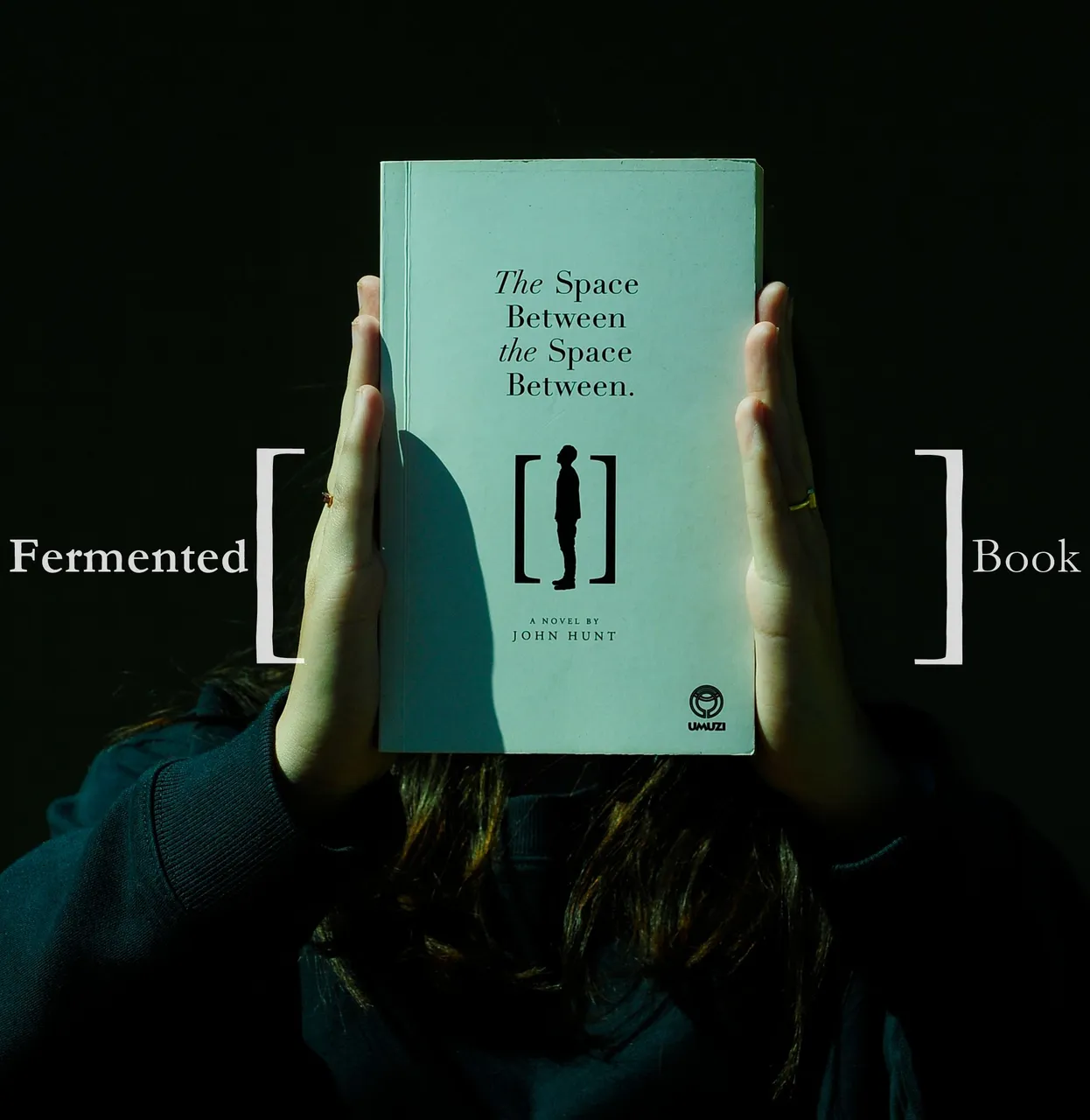
Page 237
— John Hunt
Page 242
— John Hunt
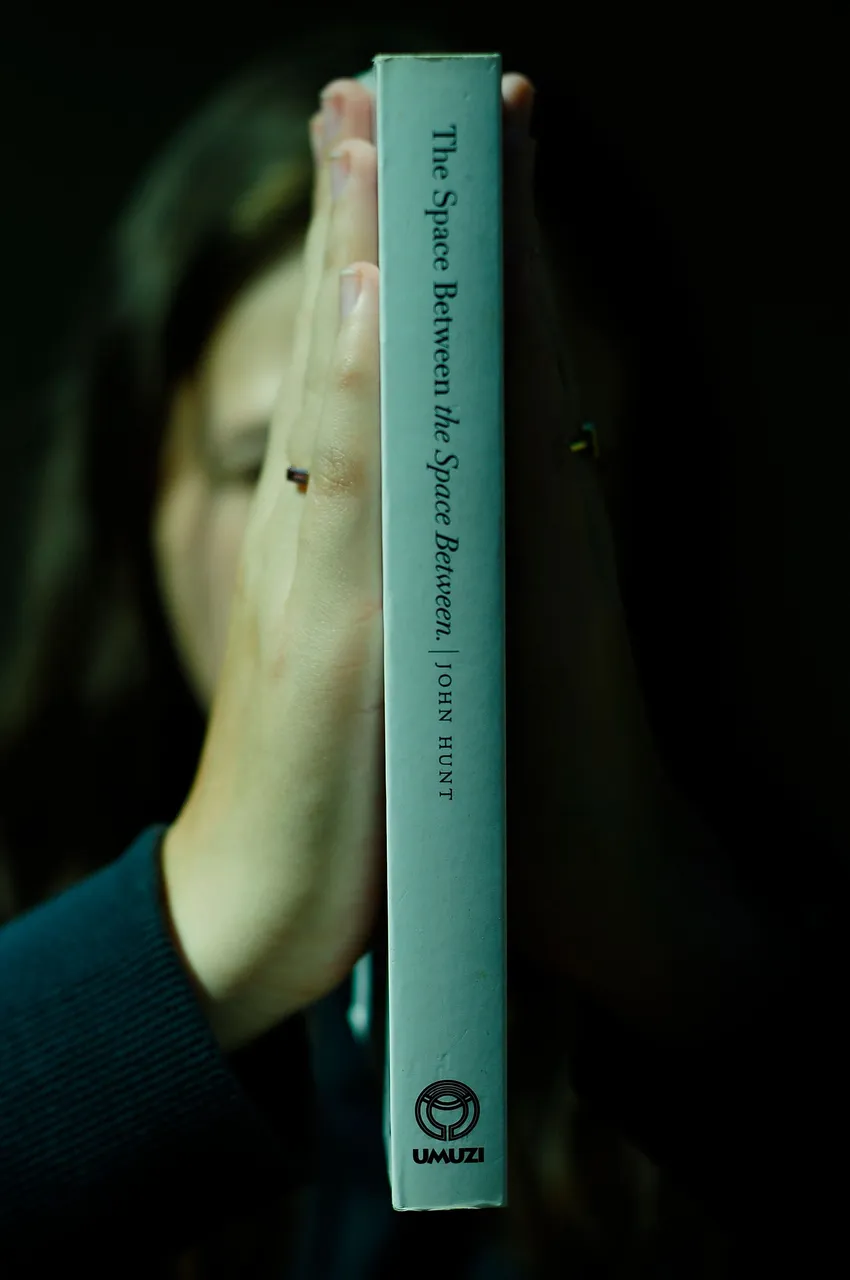
When you find a strange book in a secondhand bookshop, you sometimes know you should buy it without second-guessing yourself. My rule of thumb is to always first read the first sentence of a book alongside the blurb, and if it catches my interest, I immediately buy it. Sometimes, I break this rule.
When I saw The Space Between the Space Between by John Hunt, I knew I had to buy the book just because the title caught my attention so much. Call it a hunch, call it an impulse buy, call it what you want, sometimes the smallest of details catch your mind.
(NOTE: This review contains SPOILERS, so if you do want to read the book, proceed with caution.)
For a long time, this book gathered dust on my shelf. But a couple of weeks ago, after finishing the Milan Kundera book, I picked up this book that lured me in with its liminal title.
The Space Between the Space Between alludes to a kind of liminal space, and these themes are covered with in a very implicit style in the book. The title itself is something of a strange anomaly, how can the already space between (which is the liminal space we all know) have yet another in-between space? After reading the book, I wonder if I might not have gotten it all wrong.
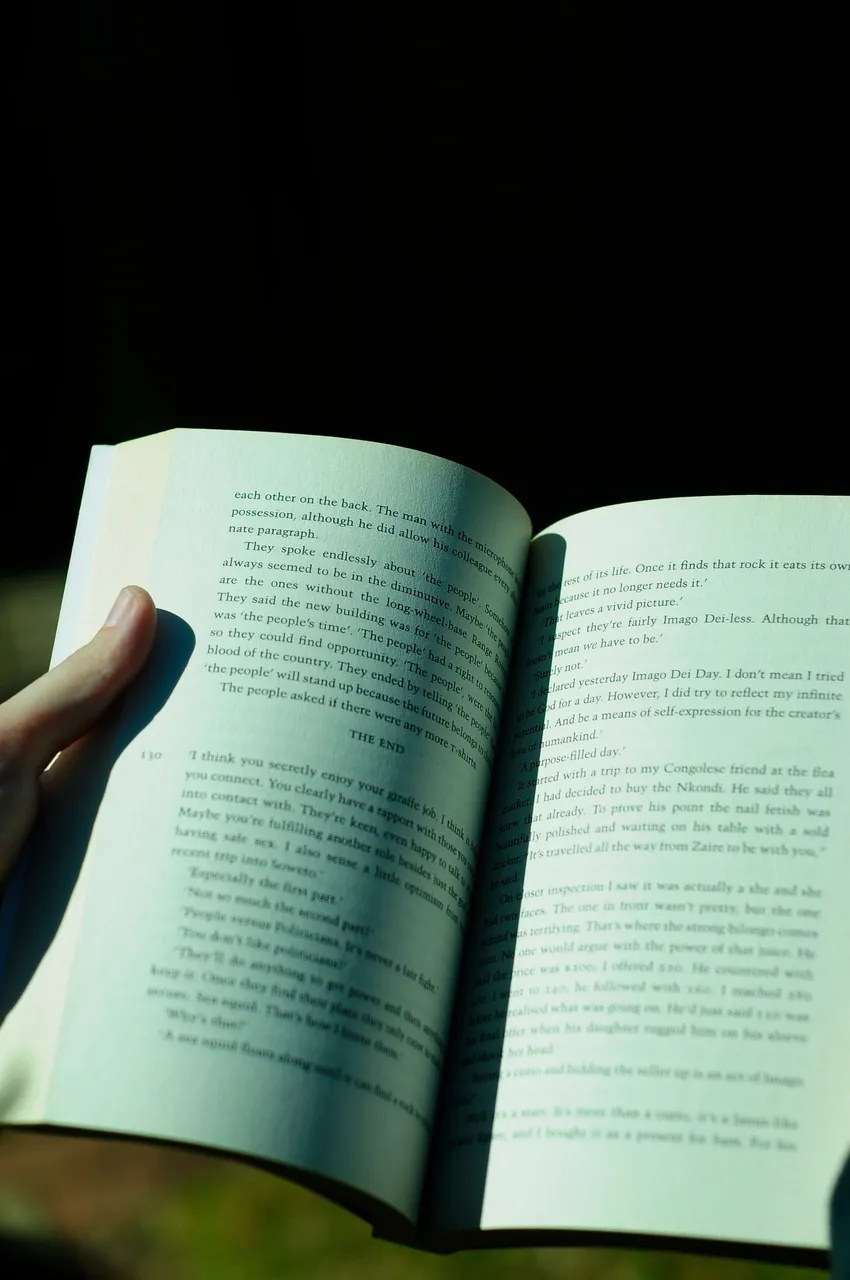
Either way, the author takes us on the journey through the main character Jethro who stumbles through life in a half-dead going with the flow mindset. We as the reader find out the reason for this is two-fold, firstly, due to a burglary in which Jethro is held hostage and badly hurt by the perpetrators, and secondly, due to the unfortunate death of his girlfriend, which he declares later on he thinks was his fault.
The author of the book previously published The Art of the Idea: And how it Can Change Your Life, a book I have also read and which deals with some conceptual analysis in a very philosophical but also inspirational/spiritual sense (think self-help books but with a philosophical twist). So the author likes to work with concepts and strange ideas.
The reason I bring this up is because the author took a very interesting idea to begin with and dealt with it in a very interesting way. In the end, if I can begin with my opinion, the book suffers from the author having too lofty ideals for the book. Or, the idea is really interesting, and could have amounted to a great book, but in the end, the book feels like it did not deal enough with building the characters.
One reason for this is that most of the narrative is broken into two elements, firstly, half of the book is just a dialogue between Jethro's psychologist and Jethro himself, and secondly, the other half is Jethro writing in his moleskin book about his experiences which he then discusses with the mentioned psychologist.
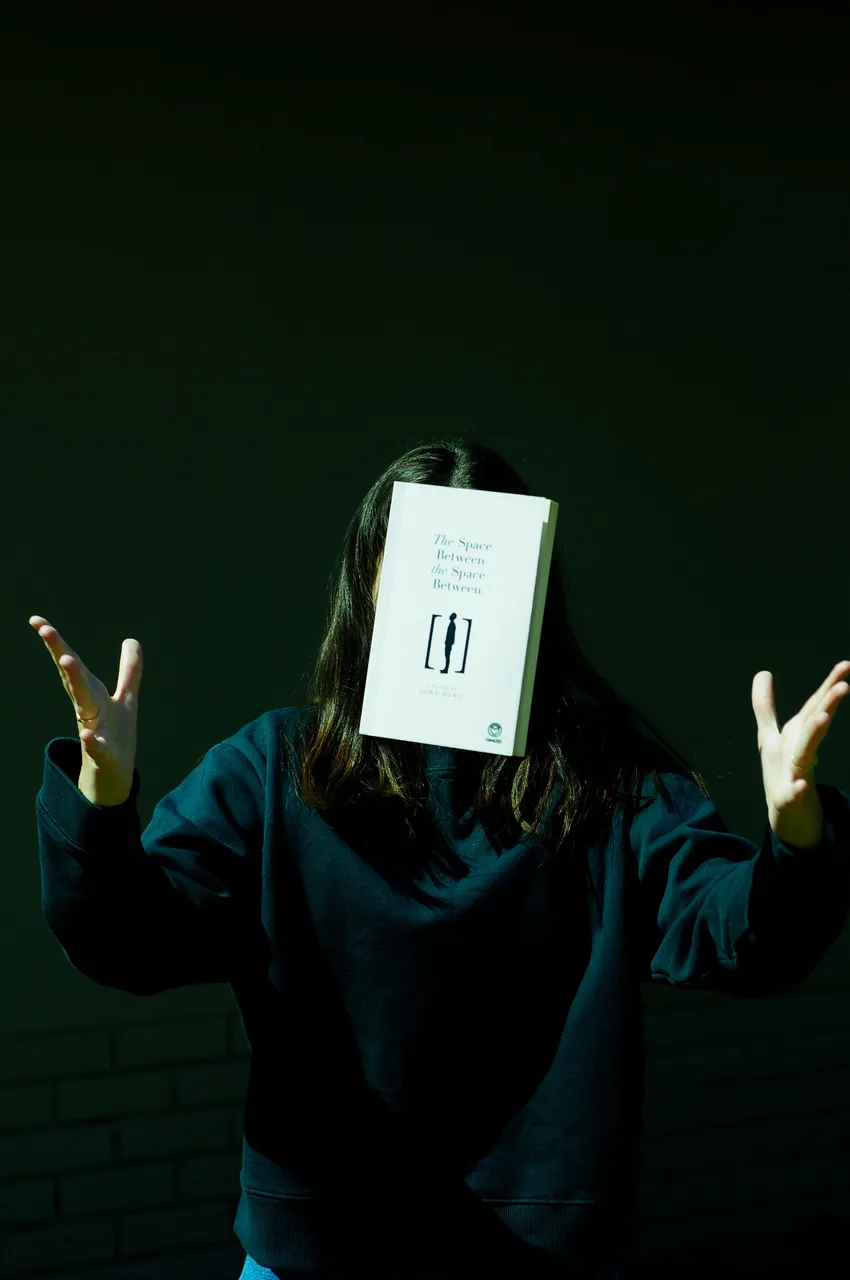
Each chapter in the book, a total of about 20, reads similarly. First, there is a strange story told from the perspective of Jethro, his experience of something which we as the readers never confirm if it happened or if it was Jethro's imagining of a situation which always abruptly ends with "THE END". After this, the narrative or dialogue with the psychologist ensues, which sometimes deals with the preceding story written by Jethro, which the psychologist then also reads.
The narration is thus unreliable as we never really know when Jethro is making something up (dare we say rationalisation), or when something actually happened. It makes for a really dream-like experience and read, almost like magical realism but not 100%.
The novel had so much potential, with Jethro finding himself in a situation that had real potential to make for such an interesting read. But in the end, it feels like the author merely told us the story and he did not allow the character to develop, and to show us what happened.
Various storylines and "side quests" are described which did nothing for the story as it was presented, and we as the readers are left asking: "Why was this important to the character?" Because from my reading, I felt Jethro was placed into different situations for the sake of the story, causing him to merely float from one scene to another.
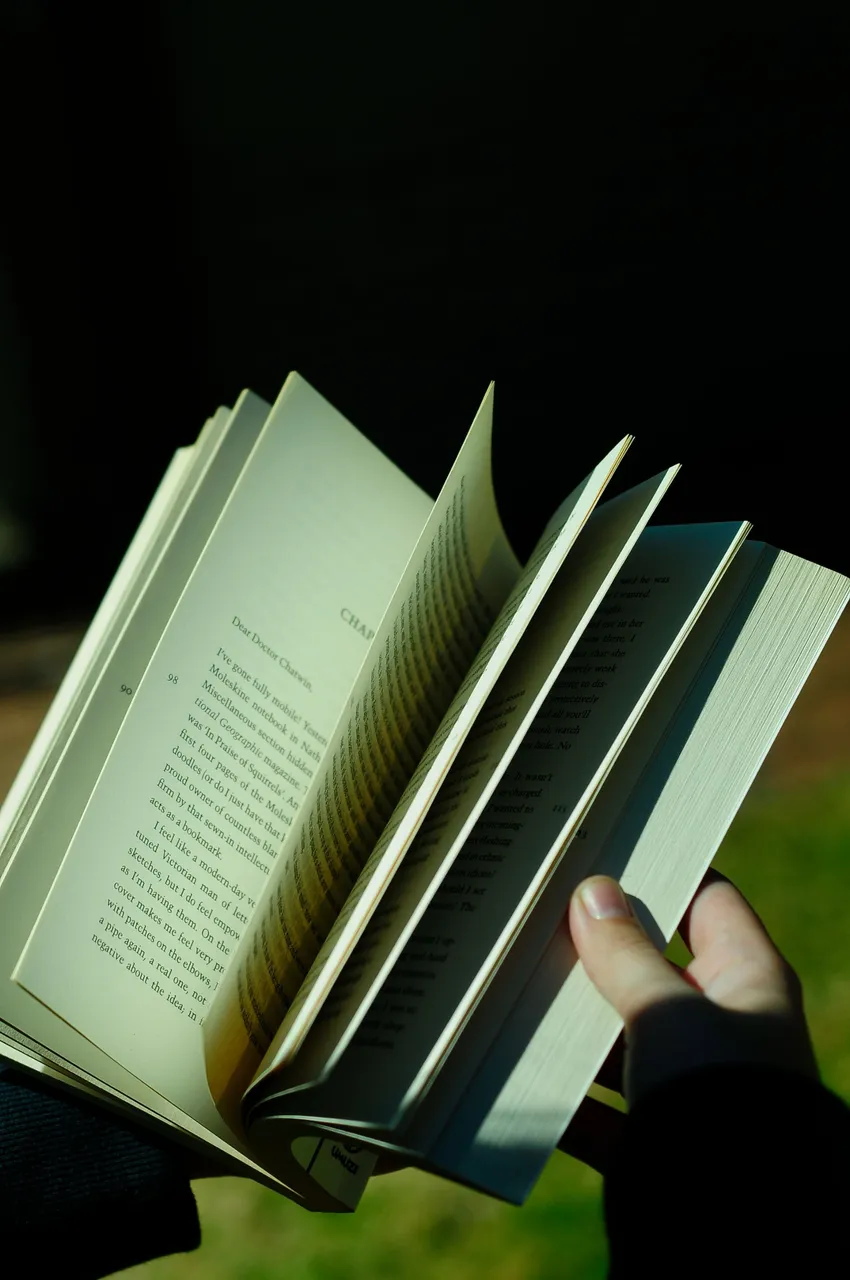
As some of the Goodreads reviews stated, maybe I as a fellow South African am just too harsh on a fellow South African. But I really think that the author could have produced something stunning if they were not so focused on the structure of the book and in placing Jethro in so many different situations which did not always make sense.
In the end, we are told throughout the story that the space between the space between is that millisecond or infinitely small space between the past and the future which we create to escape the very present we are living in. (See the two quotes above.) This makes sense because of the sadness Jethro feels for his situation, and some other characters he talks about that also create this space to escape. Think about the person being paid almost nothing to swipe the street while being harassed by people who "switch" himself off, he has entered the space between the space between.
It was a fun read, but I think the author suffered from trying to do too much, or from having a too philosophical idea that he could not build well enough in the realm of "show don't tell".
Or maybe I am hammering too much on this element... Because from the sideline it is easy to quickly point out other's mistakes from your own perspective...
Either way, I hope that you have read some awesome books recently, and that you have some other books on your "to-read" list as well!
For now, happy reading, and keep well.
All of the writing, reflections, and opinions voiced in this post are my own, unless hyperlinked. The photographs are also my own, taken with my Nikon D300.
The Fermented Philosopher's Library
| 🕮 The Book of Malachi | 🕮 The Outsider | 🕮 A Clockwork Orange | 🕮 Perfume |
|---|---|---|---|
| by T.C. Farren | by Stephen King | by Anthony Burgess | by Patrick Suskind |
| 🕮 The Uninvited | 🕮 Life Is Elsewhere | 🕮 Philosophy as a Way of Life |
|---|---|---|
| by Geling Yan | by Milan Kundera | by Pierre Hadot |